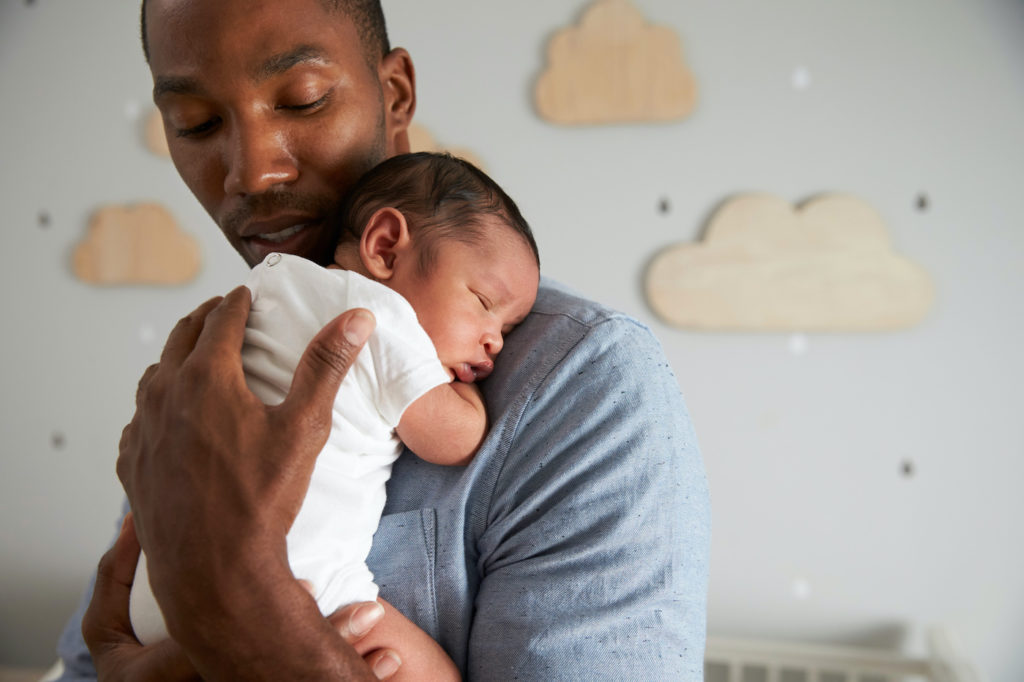Our liberal political order is premised on individual autonomy—the belief that people may justly be bound only by chosen duties and obligations. There is something gritty, American, and admirable about being self-sufficient. But when taken too far and made into an ideology, this ideal ignores basic realities about human existence. We are born dependent and remain dependent throughout our lives in different ways. By making the false ideal of independence the basis of our political and social order, we end up denigrating actual, dependent human lives.
Children especially unsettle this scheme of liberal individualism. A system based on the free consent of independent persons overlooks the dependence of childhood. An instructive example is provided by John Locke, whose theorizing influenced the American Founding and is often echoed in today’s political discourse. Locke struggled to fit children into his system, which was based on the idea that “all men are naturally in . . . a state of perfect freedom” and “also of equality.” This natural liberty of man, in which he is subject only to the “law of nature” but not to any person, is surrendered only by his consent. But children do not, and cannot, consent to the parental, social, and political authorities that govern them.
Locke was aware of this difficulty and acknowledged that children “are not born in this full state of equality, though they are born to it. Their parents have a sort of rule and jurisdiction over them.” But he argued that this is temporary, and that “the bonds of this subjection are like the swaddling clothes they are wrapped up in and supported by in the weakness of their infancy. Age and reason, as they grow up, loosen them, till at length they drop quite off.” In the meantime, parents are under an “obligation to preserve, nourish, and educate” their children. Locke argues, therefore, that parental authority “arises from that duty which is incumbent on them, to take care of their offspring during the imperfect state of childhood.” Parents merely protect and prepare children to become free and consenting adults.
But after children learn to self-govern, they become free from both parental and political authority, unless they willingly submit to it. Locke insisted that even though we are born under governments, men retain a right to natural freedom just as much as “if they were born in the woods among the unconfined inhabitants that run loose in them.” Consequently, when a child has grown up “he is a freeman, at liberty what government he will put himself under.” Locke deals with children by reducing them to eventual adults who can freely opt out and leave family, community, and nation.
Start your day with Public Discourse
Sign up and get our daily essays sent straight to your inbox.By making the false ideal of independence the basis of our political and social order, we end up denigrating actual, dependent human lives.
Optional Obligations
This is an unsatisfactory account in many ways. He ignores the constraints of our contingency—the extent to which our ostensibly free and rational adulthood is governed by our unchosen childhood. But Locke’s biggest misstep is making the supposed natural freedom of independent adults normative. This error leads to further distortions: dependence, which is equated with subjection, becomes viewed as a temporary burden to be put up with, rather than an essential aspect of humanity around which society should organize itself.
This is the logic behind Locke’s attack on the permanence of marriage. He argues that “the chief, if not the only reason why the male and female in mankind are tied to a longer conjunction than other creatures” is the duration of childhood dependence. Locke then wonders if “this compact, where procreation and education are secured, and inheritance taken care for, may not be made determinable either by consent. . . .” The implication here is that free and rational adults are permitted to leave their spouse and children if they pay off their obligations to them.
This is the natural endpoint of individualism—sufficient cash can provide freedom from the demands family and human dependence place on us. In practice as in theory, children and other dependents are inconvenient to a culture and politics of liberal individualism. Parents in particular cannot be autonomous, for parental choices are circumscribed by the needs and well-being of their children. Thus, individualism views having children as an optional lifestyle choice, preferably undertaken as a capstone to success. Technology and an unregulated fertility industry even ensure that children can now be ordered like high-end consumer goods, while genetic screening and abortion ensure that defective or unwanted products are culled. Like other luxury goods, children are rigorously protected—so long as this protection does not interfere with adult autonomy. A man will catch more legal trouble for driving his young children around without car seats than for abandoning their mother.
Fracturing Families
Our culture will spend money to protect children, but it is reluctant to limit adult autonomy, especially sexual autonomy, for that purpose. From the internet (where there is no real age verification required to access porn) to family structure and stability (where expecting parents to be married is a relic of the past), adult freedom is prioritized over children’s well-being. Predictably, this hurts children, especially poor children. But the importance of intact natural families cuts against the grain of liberal individualism. Policies from divorce laws to blue laws that promote and protect families by limiting adult options are routinely denounced as paternalistic by ideologues on both the Right and the Left, with the former especially concerned over any interference in the market, and the latter over any restrictions on sex.
The sacrifice of children’s needs to adult indulgence is just one way in which individualism’s hatred of dependence reauthorizes cruelties that rights-based systems were supposed to resist. The ideal of autonomy denounces choice restrictions in the name of protecting the weak, and yet liberal regimes tend to be indifferent to a woman’s selling her body or renting out her womb. Autonomous individuals have a presumptive right to do what they like with themselves, regardless of whether it is degrading or foolish. Notably, liberal societies tend to be most enthusiastic about what they see as children’s interests when it comes to proclaiming their nascent sexual autonomy.
Even the social safety nets of liberal states are often justified as a means of preserving individual autonomy. Care is bureaucratized and professionalized so that the duty of providing for the poor and disabled is primarily fulfilled by paying taxes that enable the government to hire social workers (mostly otherwise unemployable college graduates) to manage the dependent among us. This system is meant to avoid the personal burdens of solidarity and individual obligation, and to maximize workforce participation—a woman who stays home and cares for her own children is a tragic waste; a woman who is paid to care for other people’s children is a success.
Furthermore, by making free and rational independence the standard for persons, individualism suggests that those who lack this autonomy might be less than fully human, and therefore not entitled to the rights liberalism promises. Thus, the most dependent are sometimes entirely excluded from liberalism’s protection. Human lives in utero doubly infringe on the ideal of the autonomous human person. Not only are the unborn completely dependent, they decrease the independence of their mothers. Pregnancy makes women more dependent, as do the rigors of childbirth and caring for infants. The ethos of individual autonomy chafes at the realities of human reproduction, and at their uneven distribution between the sexes, and the market resents the interruption to an efficient workforce.
Babies are the ultimate rebuttal to liberal attempts to root politics and culture in the ideal of autonomous individualism. Babies are dependence personified. Furthermore, they remind us that life is given to us, with all of its particularities and inequalities. Liberalism demands that life be fair, so that we can freely choose what we want to be and how we want to live. But as ancient wisdom handed down from generation to generation reminds us, life isn’t fair. Existence is not fair. Existence cannot be consented to ahead of time. We are born into a world of dependence, contingency, and obligations for which we have not signed a contract.
Not only are the unborn completely dependent, they decrease the independence of their mothers. Pregnancy makes women more dependent, as do the rigors of childbirth and caring for infants.
Saving Liberalism from Itself
Liberalism becomes a death wish as its adherents seek to be released from the constraints of existence. This liberal death wish has become obvious in our personal and social refusal to have a future. Our fetishization of autonomy is culminating in collapsing birthrates, self-indulgent “child-free” lifestyles, and doom-mongering anti-natalism.
But diagnosis is not a cure; the death wish is obvious but not necessarily remedied easily. If liberalism is to find the resources within itself to do this, it will be through an insight developed from Christianity, which is the brotherhood of man under God. This would help us recognize that a true human equality is based on our common dependence, finitude, and mortality, not autonomous individualism. This in turn would provide a firm foundation for human flourishing, which is found through relationship with others.
Society would also benefit by recovering an understanding of its true beginning, which is not an imagined state of nature, but the primordial human relations of mother, father, and child. Life begins in dependence and remains inseparable from unchosen obligations. It is impossible to know, when getting married or having a child, just what will be required of us, which is why wedding vows are very different from the contracts of liberal theory. Likewise, because not all of the obligations of parenting can be foreseen and agreed to in advance, contract theory cannot encompass the unconditional obligation parenthood involves.
Consequently, an ideology of individualism overlooks the blessings of obligations, through which we are bound to others. It is often hard work, but to live, and to live abundantly, we must embrace dependence.














